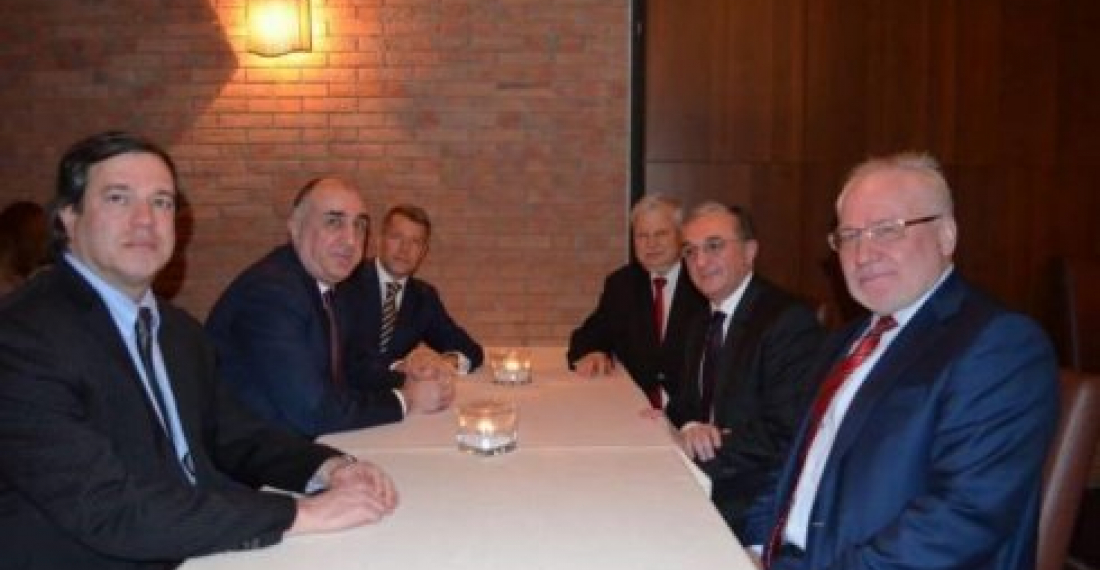After meeting in Milan on Thursday (5 November) the Foreign Ministers of Armenia and Azerbaijan and the co-chairmen of the OSCE Minsk Process have issued a joint statement which has been posted on the OSCE website. The statement says:
On the occasion of the OSCE Ministerial Council Meeting in Milan, the OSCE Minsk Group Co-Chair countries (the Russian Federation, the United States of America, and France) and the Foreign Minister of Azerbaijan Elmar Mammadyarov and Acting Foreign Minister of Armenia Zohrab Mnatsakanyan agreed to continue working towards a just and lasting peaceful settlement of the Nagorno-Karabakh conflict.
The Co-Chair countries welcomed the significant decrease in ceasefire violations and reported casualties following the conversation of the leaders of Armenia and Azerbaijan on the margins of the Commonwealth of Independent States' summit in Dushanbe in September. They appealed to the sides to continue implementing the understandings reached there and to take concrete measures to prepare their populations for peace. The Co-Chair countries expressed hope that an intensive results-oriented high-level dialogue between the leaders of Azerbaijan and Armenia to promote a just and lasting settlement of the conflict can resume in the near future.
The Foreign Minister of Azerbaijan and the Acting Foreign Minister of Armenia reaffirmed their commitment to work intensively to promote a peaceful resolution of the conflict and to further reduce tensions. They agreed to meet again in early 2019 under the auspices of the OSCE Minsk Group Co-Chairs for this purpose and in order to facilitate high-level talks. They recognized the strong engagement and good-faith mediation efforts rendered by the Co-Chair countries, as well as the activities of the Personal Representative of the OSCE Chairperson-in-Office.
source: commonspace.eu with osce.org
photo: The Foreign Ministers of Armenia and Azerbaijan with the OSCE Minsk Group co-chair at their meeting in Milan on 5 December 2018.






